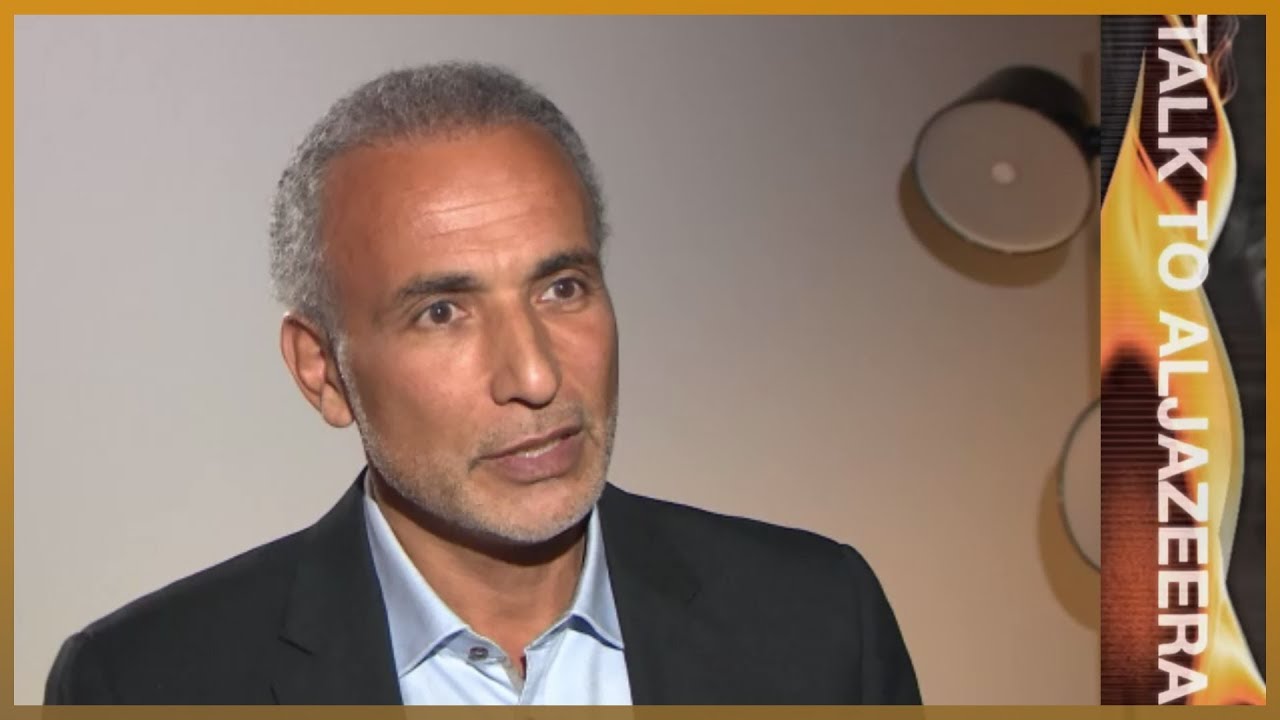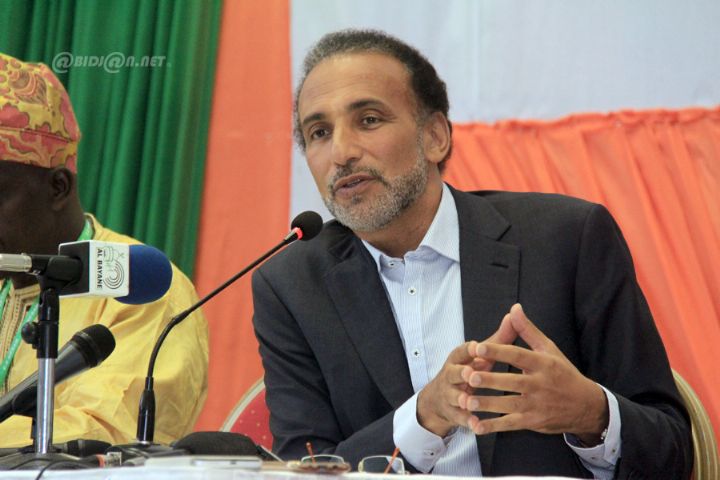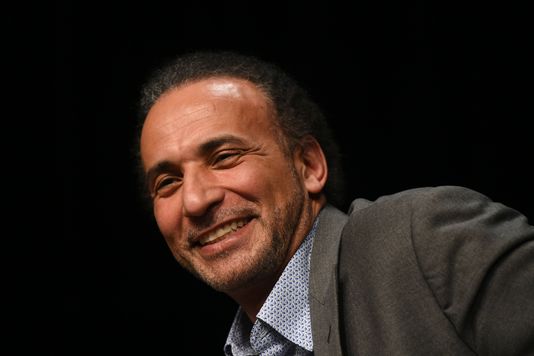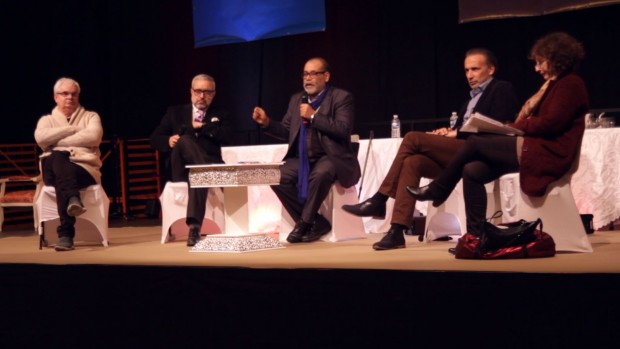LewRockwell.com
Border crossings and embassies often succeed in making it feel like someone’s scraped the lining of your stomach with a cold blade. They’re there to « help us, » but as can happen in the case of policemen and governments, one isn’t always too convinced. That you aren’t committing a crime or smuggling contraband or thinking about overthrowing the world makes little difference. Embassy and border officials maintain a unique capacity to look at you as if you were.
Tariq Ramadan must have had that cold blade to the stomach lining sensation when he was told last July that his freshly stamped visa to the United States had been freshly revoked, without explanation. If he had been a liar and cheat of Ahmed Challabi stature, his visa would assuredly have remained valid. But Ramadan was an academic headed for the University of Notre Dame, where he had been appointed a post as professor of religion, conflict, and peace-building. His visa was yanked under the Patriot Act.
« Ah, » one will reflexively think. « There must have been some rhyme and reason to it. » No doubt. But there is strong doubt that the rhyme and reason for revoking Ramadan’s visa goes far beyond paranoia, bigotry, and the persistent tradition of bureaucratic insanity that has tainted the visa business for years. The chances are 99 out of a hundred that Ramadan is guilty of nothing more than being Muslim. Yet, there is that 1% chance that he might be an Al Qaeda operative who’d cleverly wormed his way into the Peace Studies Program at Notre Dame. Mother Teresa, for that matter, might have been a transvestite. Donald Rumsfeld might be an undercover Mennonite theologian, and you or I might be alien spores intent on colonizing planet Earth. There are infinite possibilities as to what one might in fact be. Common sense bids us reject the more ludicrous.
One would like to think that ludicrous decision-making is the exception in America’s consular section. Tariq Ramadan’s experience calls to mind the recent high profile turning away of singer Cat Stevens, and of Ibrahim Ferrer, the guitarist denied entry to the U.S. given his highly suspicious motive of intending to accept a Grammy Award. Who knows what havoc the 76 year old Cuban might have unleashed had he been granted a visa? Decades back the visa people advertised their potential for insanity by refusing entry to novelists Graham Greene and the Nobel Prize winning Gabriel Garcia Marquez – something about an all night revel with Fidel Castro rendering them unfit to enter the Land of the Free. Increasingly, even visitors to the U.S. granted visas have been saying to hell with it; for example, Indian-born Canadian novelist Rohinton Mistry, who’s decided the indignities he’s encountered traveling while brown at U.S. airports are simply not worth the trouble.
For every high profile indignity there are many times that number incurred on just plain people. I’ve taught overseas for years and could tell a thousand stories about people like Farah, one of my favorite sixth graders at an American embassy school long before September 11 « changed everything. » Farah was so excited about her upcoming trip to the States. And then one day, so humiliated. It turned out that children with Libyan fathers, even well-connected, intelligent, and respected Libyan fathers, did not merit a two-week vacation in Florida. I could tell you about Toki, an outstanding student and devout Christian whose integrity is beyond reproach. That is of course, my opinion, but it is an opinion based on two years of close contact. Toki had everything ready – his acceptance letter from the University of Missouri, his money, his positive attitude, even his luggage. Then he was denied a visa. He’d been guilty of that most nefarious of consular section crimes – existing while Nigerian. A less resourceful person would have given up, but Toki immediately began looking elsewhere. At the last minute, he was accepted at a college and granted a visa to Canada, where he is doing exceedingly well in his studies. Canada has Toki’s gratitude and good will, his potential, and not least his tuition money. That the University of Missouri and America were not allowed to reap these windfalls seems to me not just bad business and bad hospitality, but little short of insane.
The most recent and perhaps most ludicrous of my visa tales involves a British citizen (entirely Caucasian, apolitical, and secular, for the record) from that not particularly terrorist hotbed of Torquay in southwest England. Andrew had been living and working in Morocco for upwards of twenty years. That last detail is apparently what prompted the customs people in New York City not to allow my old friend and former colleague to pollute U.S. soil last summer. It didn’t matter that Andrew had been in the U.S. each of the prior eight summers working at a camp in upstate New York. It didn’t matter that he had spent a year coaching soccer at a liberal arts college in Indiana. It didn’t matter that he has worked as a physical education instructor for nearly two decades at an International American School or that a fair proportion of his students are U.S. embassy children. It didn’t matter that under any gauge conceivable Andrew bears as much resemblance to a terrorist as Shirley Temple. It didn’t matter that Andrew admires (or used to at any rate) America. In New York City last summer he was told to get on a plane, go back to Morocco or Torquay or whatever un-American sounding place he claimed he hailed from, and not bother to reapply for a U.S. visa for another ten years. No explanations given.
I have a fairly personal reason for contesting the sanity of some of the people assigned to letting the good guys in and keeping the bad guys out. Many years ago I married an alien – not the mantis-featured variety that frequents Roswell, New Mexico, but a Moroccan. At first, I’d fancied she was a human being – it was only after a visit to the U.S. embassy in Rabat that I became fully aware of her alien status. We’d gone there to apply for a tourist visa to the States. It seemed routine. My wife had been to the U.S. half a dozen times before marrying me, a red-blooded (sort of) American. She had a master’s degree from Indiana University where she’d gone on a Fulbright Scholarship. She’d led groups of students to the States on white-bread programs like The Experiment in International Living. She’d visited the States as a tourist on several occasions, spoke fluent English, had a long-term job contract binding her to Morocco. Well, to make a long story short, she was not granted a tourist visa. The consul who made the decision was arrogant, oblivious, irrational, mendacious, condescending, and endowed with an unusually porcine set of jowls (not, God forbid, that I am holding a grudge 15 odd years later). I had to go to the States alone that summer, and spend most of it trying to persuade my family that the alien was not really the insidious creature her visa rejection hinted at. My feelings about the world’s greatest democracy have never been quite the same since.
There are many fine and qualified people working in American embassies and in American customs. It is not my intention to say there are not. And being a consul or border official is not an easy job. It is not my intention to say that it is. It is merely my intention to suggest that a degree of horse-sense and a modicum of discernment might be a useful pair of qualities to insist upon when the state department goes about filling consular posts. Meanwhile, we may as well expand our stock of venal and incompetent border official stereotypes to include not only indolent Mexicans, leering Turks, grease-palmed Africans, inflexible Germans, chauvinistic Frenchmen, and the entire host of lesser nationalities to make room for clueless, bigoted, and questionably sane Americans as well. It seems only fair. We may be thankful that clueless, bigoted, and questionably sane American bureaucrats are not yet the norm. But with the Patriot Act on their side, and an administration supporting a clueless, bigoted and questionably sane war, who’s to say they may not become so?








Salâm à tous,
J’ai eu affaire avec le consulat de France à Damas, et en dépit du fait que je possède la nationalité française, j’ai été traitée d’une manière aussi humiliante que les personnes qui se sont vues refuser un visa américain dans cet article. A croire que l’ensemble des personnels consulaires sont recrutés sur des critères de sectarisme et d’étroitesse d’esprit.
C’est bien le statut de « l’étranger », les représentations qu’on en a qu’il faut réformer. D’un point de vue consulaire, est étranger celui qui ne fait pas partie de la classe dominante c’est-à dire grossomodo tous ceux qui ne sont pas blancs, mâles, bourgeois avec la main longue .